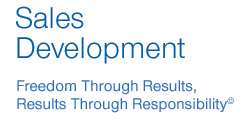This Addiction may be Costing You Millions
December 16th, 2021Let’s be brutally honest. When you sell…:
• Do you feel anxious to tell buyers why your product, service, or company is great?
• Are you more comfortable talking & presenting versus asking tough, probing questions?
• Do you listen more selectively than actively?
• Does your blood pressure increase when you perceive a “buying signal”?
• Do you often listen with “happy ears”?
• Do you feel pressure during sales calls to make sure you get in your “key points”?
• Do you often leave sales calls without getting all the critical information you need?
• Do you wonder why some of your prospects “Just don’t get it”?
• Do you love being an expert?
• Do you struggle to convince people to buy your product or service?
• Even though you are aware that you should listen and learn more while talking less during sales conversations, do you find yourself talking way more than you’d like?
• Is it possible you are addicted to Convincing?
If you answered yes to one or more of the questions above, you may be a Convince-aholic ©.
Like all addicts, the CONVINCE-AHOLICS EXHIBIT SELF-DESTRUCTIVE BEHAVIOR that temporarily fills a void created by unmet needs while creating poor results.
Similar to other types of addicts, Convince-aholics are constantly bombarded with temptation, making their addiction challenging to overcome.
Most existing sales literature, on-boarding sessions, and training programs exacerbate the Addiction by presenting clever techniques or scripts and encouraging salespeople to use manipulative “leading” questions, tie-downs, and use slight-of-hand. Each of these convincing techniques actually diminishes a salesperson’s ability to differentiate themselves, to facilitate discovery, to develop trust, to learn the truth, and to add value — the essential core competencies of the world’s most successful salespeople.
Despite the fact that Convince-aholics consistently lose sales and struggle to maintain margins, their behavior provides a dopamine rush. This rush makes them FEEL like they are gaining. If they didn’t, they would likely stop their destructive, ineffective behavior and replace convincing with a consultative discovery process leading to consistent success.
Some characteristics that come out of Recovery Literature follow. Please consider the parallels:
The Addictive Experience
1. Creates predictable, reliable sensations.
2. Becomes the primary focus and absorbs attention.
3. Temporarily eradicates pain and other negative sensations.
4. Provides artificial sense of self-worth, power, control, security, intimacy, and accomplishment.
5. Exacerbates the problems and feelings it is intended to eradicate.
6. Worsens functions, creates loss of relationships.
At a foundational level, success in selling is based upon mindset and beliefs. The Convince-aholic mindset dramatically diminishes selling effectiveness, the quality of relationships, trustworthiness, and income.
The great news is that any Convince-aholic can overcome their addiction using a time-tested recovery program.
If you believe you may be afflicted (or know someone who is), would like to assess the severity of your addiction, and would like to understand the process to get clean, feel free to email me and write “I May Be Addicted” in the subject line.
Wishing you nothing but success in 2022 and beyond.
To Your Freedom…
Copyright © Joe Zente 2021. All Rights Reserved.
|
|










